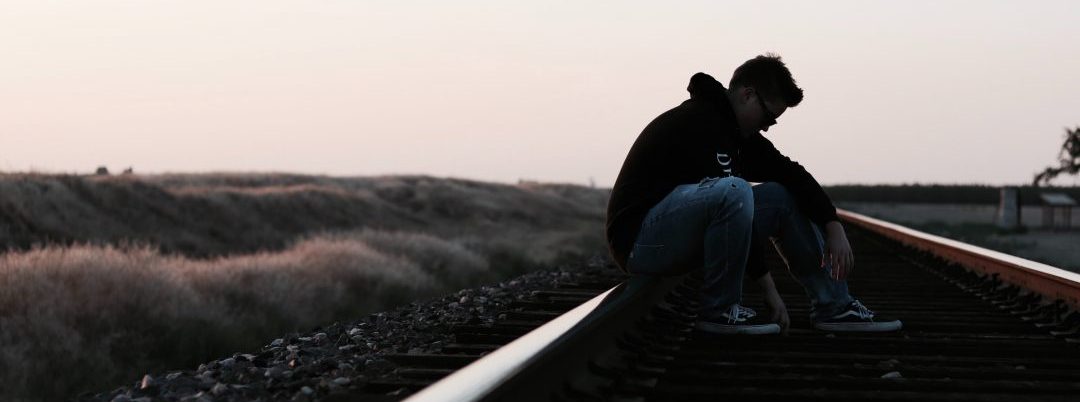
- PTSD can be divided into four phases: the impact phase, the rescue phase, the intermediate recovery phase, and the long-term reconstruction phase.
- The impact phase encompasses initial reactions such as shock, fear, and guilt.
- In the rescue phase, the affected individual begins to come to terms with what has happened.
- The intermediate recovery phase is characterized by one’s adjusting to normal life again.
- Long-term reconstruction is all about rebuilding and continuing to deal with the aftermath of the trauma.
Most of us are familiar with the term “PTSD” (or posttraumatic stress disorder), but our knowledge doesn’t extend much further. We know that it can involve frightening flashbacks and nightmares. That war veterans and assault victims are at a heightened risk of developing the illness. But do we have a clear idea of how this illness unfolds and how it might affect victims over time? If you do, great. If you don’t, you’re going to! Courtesy of myself and Dr. Sal Raichbach, a licensed clinical social worker at Ambrosia Treatment Center. “Posttraumatic stress disorder is comprised of four phases: impact, rescue, intermediate recovery, and long-term reconstruction,” Raichbach explains. “As the individual passes through these stages, symptoms can come and go. These phases aren’t fixed though, and individuals can pass from one into the other during their recovery journey.” Now, keeping that in mind, let’s delve into these four phases.
Impact
This first phase—the impact phase—typically occurs soon after the individual has experienced or witnessed the given traumatic event. It can last as little as a few hours, but may also persist for much longer, depending largely on the severity of the event. For example, someone who has lost their home in a fire may stay in the impact phase for a longer period of time, whereas an individual who witnessed a robbery may experience a shorter impact phase because they can physically escape that nightmare and return safely home. In either and any regard, affected individuals typically experience the following…
- Shock
- Fear
- Helplessness
- Guilt
- Anxiety
- Hypervigilance
Rescue
The next phase is the rescue phase, whereas the individual starts to come to terms with what has happened. This might involve returning to one’s home to assess damage or talking to other survivors—it’s about acknowledging what has happened in one capacity or another. That’s not to say, however, that one fully processes the trauma in this phase—they are still dealing with the initial shock and distress. And they typically experience a range of difficult emotions as well as mental and physical effects. These effects include…
- Denial
- Confusion
- Anxiety
- Flashbacks
- Nightmares
- Despair
- Hopelessness
- Sadness
- Anger
- Numbness
Intermediate Recovery
The intermediate recovery phase is characterized by one’s adjusting and returning to “normal” life again. Once the individual has fulfilled his or her basic safety and survival needs—which is often difficult after one has experienced this high level of trauma—they can begin to cater to other needs that emerge. In addition, this stage often involves addressing new and ongoing adversities, as well as being humbled by an outpouring of love and support or disappointed by a lack thereof. It can ultimately be broken down into two sub-stages:
Altruism: The affected individual is amazed by the support and love they receive from others. So much so that they are inspired to take action and help others, too. They might also feel uncomfortable or hesitant expressing any negativity because they don’t want to appear ungrateful for all that has been done for them.
Disillusionment: This substage is just the opposite of the previous. Rather than feeling overwhelmed by love and support, the individual feels disappointed by the lack of a response. On the flip side, one might experience the effects of this substage when the support seizes, and they realize they’re on their own to deal with the remainder of the mess.
The effects we talked about in the last phase also often continue on into this stage. One may experience physical symptoms such as fatigue and/or sleep disturbances, as well as stress reactions like irritability.
Long-Term Reconstruction
As one might assume, this phase is all about rebuilding and continuing to deal with personal post-event problems. As an individual moves into this phase, they may become concerned about their future, which can present as…
- Fear
- Resentment
- Depression
Additionally, the meaning that one assigns to the traumatic experience can have long-term effects on their mental and emotional wellbeing—which makes talking about the event and coming to terms with the trauma one has experienced extremely important, as explained by Raichbach: “If an individual’s PTSD isn’t adequately treated, the symptoms can last for years after the event. If the emotions and memories of the event aren’t processed, they can have severe mental health consequences.” He goes on to say that processing the memory with help from a mental health professional is vital to long-term recovery.
Let’s keep in touch! Sign up to receive our newsletter:
Start a Relationship with An Exceptional Counselor
- Skilled and caring professional counselors
- Accepting all major and most insurances
- High-touch customer service & premium benefits
- Same- or next-day appointments
- Ultra-flexible 23.5hr cancellations















Brian I’m so sorry about all you went through yes it’s too much to cope with. These events are over but now you are left with a lot of burdensome emotions from which you are hurting. It is possible to heal emotional trauma dear, and there are lots of youtube channels that can help you to find more about your condition. in addition to one to one counselling, and a feeling of closeness to a Higher Presence like God, Buddha, or even a spiritual guru, there are many other ways that can assist you in gradually healing these deep wounds. Even rest, sleep, walking, balanced and healthy diet sans substances, yoga, meditation, somatic therapy and so on all helps in to reverse the damage that is happening to your body and mind as a result of these severe disappointment you had to face.. LOVE your dear self Brian you are a valuable person who deserves the best from you.
Our minds can come up with painful feelings like sadness, grief, guilt, fear, anger, hate, resistance, as well as soothing ones like compassion, care, forbearance, acceptance, joy, serenity, equanimity.. eventually you can learn to move towards experiencing more of these soothing ones, as you move forward along your journey of healing.
I am a victim of sexual assault. When I was 12, I was raped at a pool nearby my house. I didn’t understand until this year that I have PTSD but now I do and I am so grateful that I can finally get some help for this illness. I always knew I had depression and anxiety of course comes with that. It’s been six years since my incident… coping is still very hard.. and this whole website was very helpful to me to finally understand why I feel certain ways and is a great explanation for everything that has happened. Like why I try to push everyone away from me.
Whoever made this website, you’re a genius and I thank you because you might have just saved this girl’s life. Thank you if you read this far as well. It’s nice to know that I am not alone.
over one year ago this June, while on my quiet serene daily walk, I was torn apart by an 80lb pit-bull terrier. I have been seeing a therapist. I’m alive, that’s about it. Pls Keep your dogs secured, muzzled, while they are outside. Especially if u know they have anxiety or aggression issues.